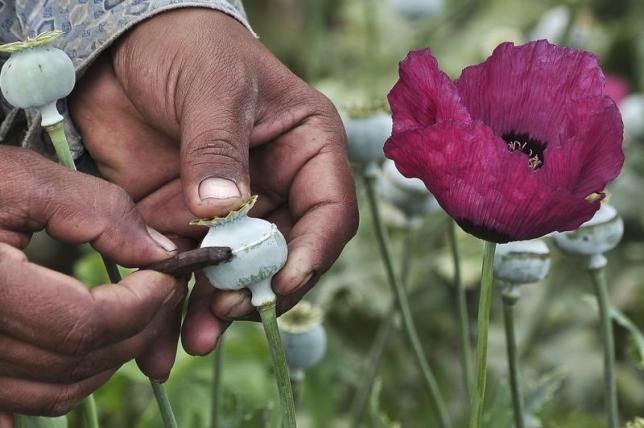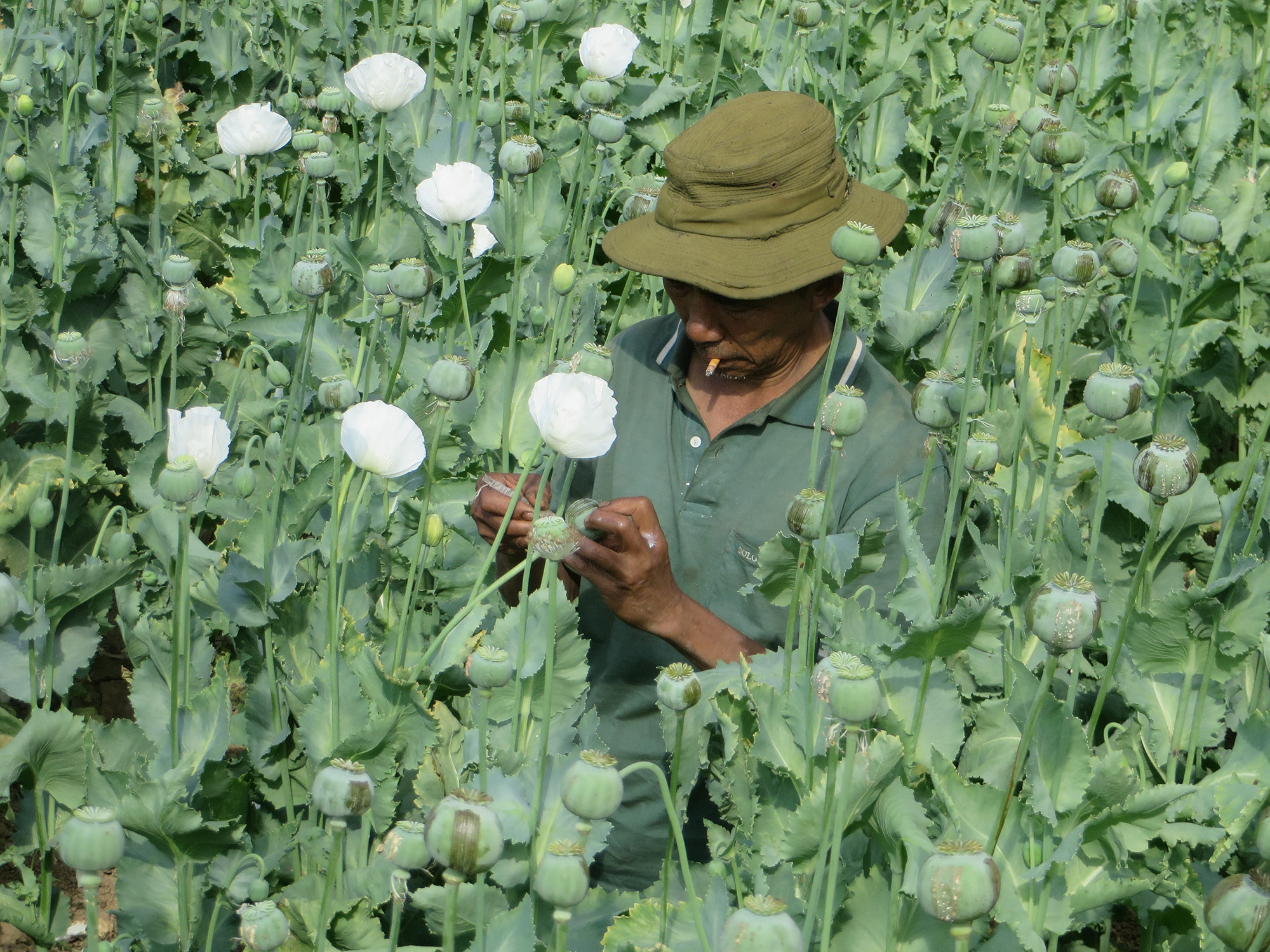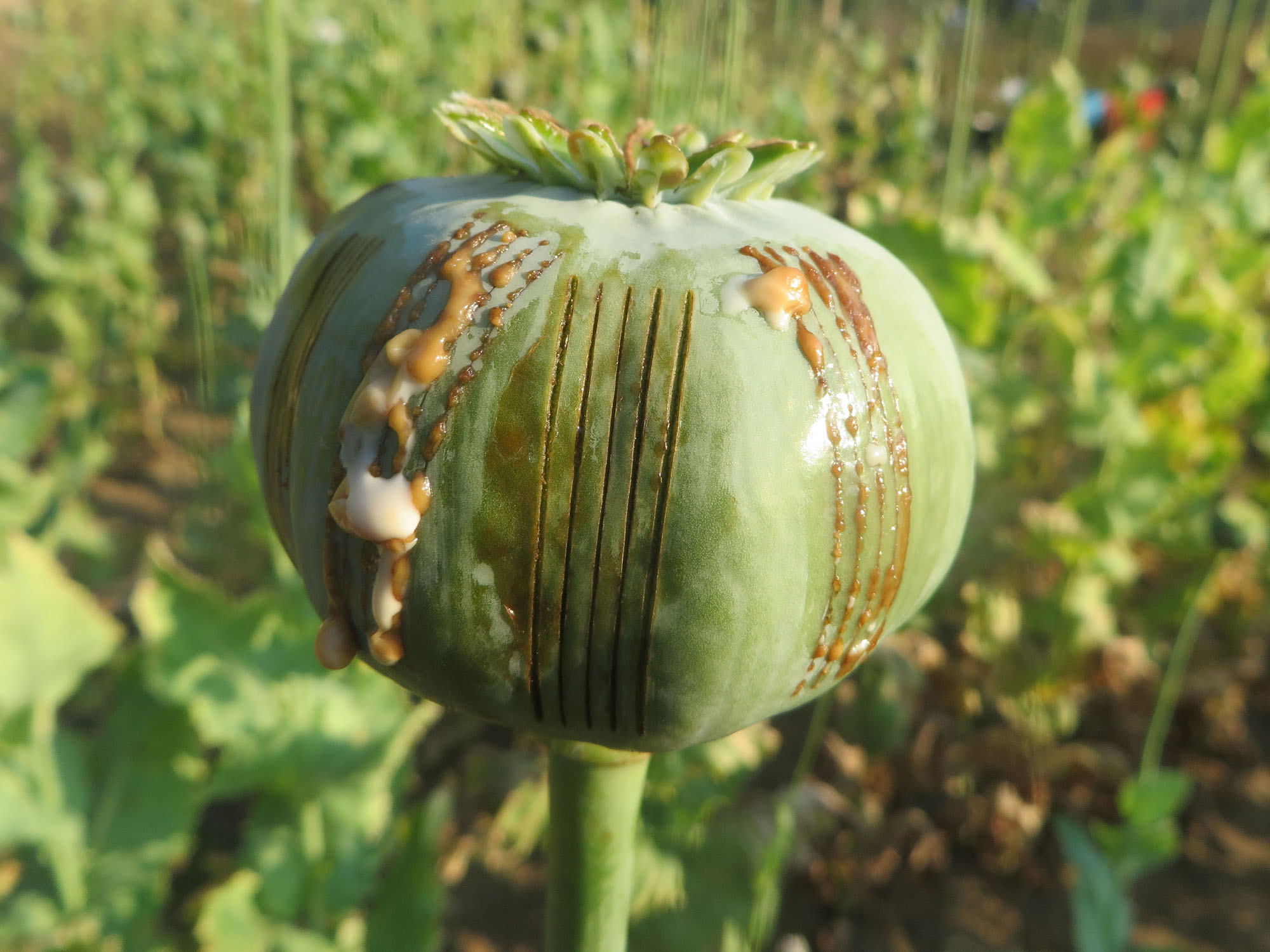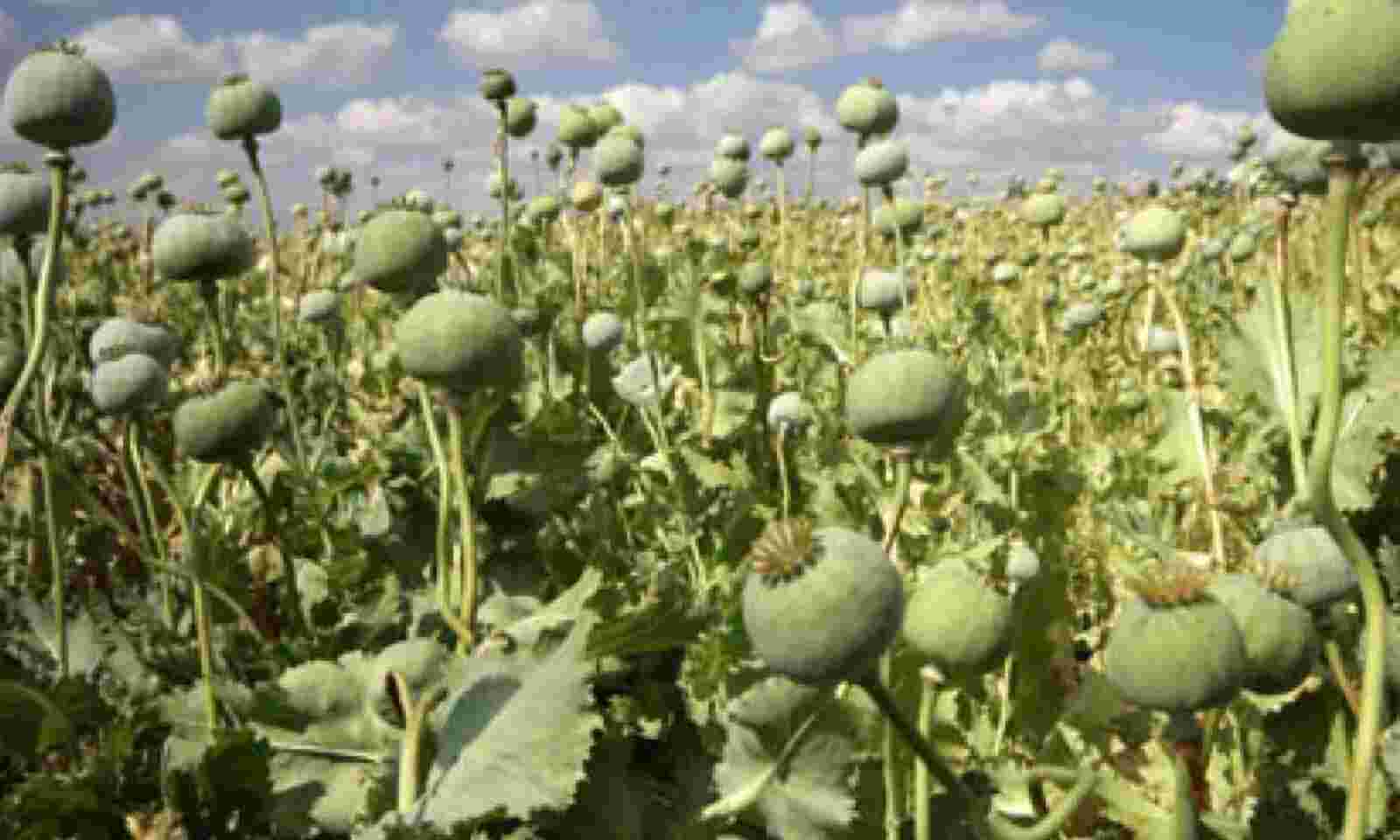Thu 26 January 2023:
Opium poppy was cultivated on more than 40,000 hectares in Myanmar last year, a 33 percent increase compared with 2021.
Opium poppy cultivation has surged in Myanmar since the military seized power in 2021, reversing a steady decline that was seen in the illicit crop between 2014 and 2020, the United Nations Office on Drugs and Crime (UNODC) has said.
Myanmar saw a 33 percent increase in opium poppy cultivation and an 88 percent increase in the potential opium yield in 2022, according to data collected by the UNODC during the first full opium growing season since the military’s seizure of power in February 2021.
In numbers, that equates to slightly more than 40,000 hectares (99,000 acres) of poppy cultivated last year in Myanmar with a possible yield of 790 metric tonnes of opium – the highly addictive narcotic that can be processed to make heroin, according to the UN agency.
“The 2022 results confirm a significant expansion is under way of Myanmar’s opium economy,” the UNODC said in a statement released on Thursday to accompany the publication of the Myanmar Opium Survey 2022.
A perfect storm of “economic, security and governance disruptions” following the military’s takeover in Myanmar have converged to create the current conditions in which opium cultivation is growing, UNODC regional representative, Jeremy Douglas, said.
“Farmers in remote often conflict-prone areas in northern Shan and border states have had little option but to move back to opium,” Douglas said.
The Golden Triangle – a jungle territory where the borders of Thailand, Laos and Myanmar meet – has long been a lucrative hub for the illegal drug trade, and the trend in Myanmar indicates that the region now appears to be reconnecting to the global market in narcotics, according to the UN.
According to the UN’s survey, the increase in opium cultivation has taken place in tangent with the production of synthetic drugs in Myanmar, which have continued to expand, “with the drug economy in the country and surrounding region generating substantial profits”.
The regional heroin trade is estimated to be worth a staggering $10bn, while the value of Myanmar’s overall opiate economy ranged up to $2bn, according to the survey.
More sophisticated farming techniques and access to fertiliser were likely the reasons for the average opium yield in Myanmar’s poppy fields increasing to almost 20kg (44 pounds) per hectare – an increase of 41 percent compared with 2021, according to the survey.
Such yield levels per hectare “are at the highest-ever estimated in Myanmar since UNODC started measuring”, the UN said.
“A continued resurgence of opium poppy cultivation in Myanmar will have significant impact on the wider drug economy centred around the lower Mekong region,” the survey states.
The UNODC’s Douglas addressed the likely regional effect at a news conference in Bangkok, Thailand, on Thursday.
“So we’re looking at an increased heroin supply which will largely be feeding into the Asian market itself,” Douglas said.
“There’s still a very significant level of heroin use within China, within Vietnam, within other countries in the region … and this brings with it, of course, challenges for public health systems and the need for harm reduction and other services,” he said.
“So we are going to see some impact on the broader region itself.”
‘Golden Triangle’ reconnecting to global market
The multiple crises that confront military-ruled Myanmar – where a nascent civil war between the army and anti-coup force has killed thousands and where 1.2 million have been internally displaced since the coup – are directly related to the increase in opium cultivation.
As the UN report shows, “farmers earned more than twice as much from opium as in the previous year” – an attractive financial proposition at a time of social instability and an economy suffering the effects of a military coup and now a civil conflict.
Importantly, the UN survey also notes that poppy eradication efforts by Myanmar authorities – normally carried out by the police and military – have plummeted in number since 2021, with 1,403 hectares (3,466 acres) destroyed in 2022, which represented a 70 percent drop in the amount of poppy eradicated in 2021.
“Continued political instability in the post-coup environment, a weak economy, inflation, and very high farm-gate prices for opium are shaping household decisions. Taken together, these economic signals can provide a strong incentive for farmers to take up or expand opium poppy cultivation,” the UN report states.

The increased income for opium farmers, however, “did not necessarily translate directly into purchasing power” as the country has experienced soaring inflation, a devalued currency, and increasing costs of fertilisers, fuel and transport.
Myanmar’s opium farmers see very little of the extraordinary profits generated by the regional and global drug trade, though people cultivating the crop last year did see an increase in their incomes with the average “farm-gate” price paid to farmers for opium increasing by almost 70 percent to a little more than $280/kg.
Opium has traditionally been an “employer of last resort” in Myanmar, Douglas said on Thursday.
“This all about poverty,” he said, noting that the foreign direct investment that Myanmar experienced over several years had created jobs and provided alternatives to opium farming.
“A lot of people left opium farming … for other employment. It’s not a desirable form of employment, but those employment opportunities are now gone as a result of the situation in the country,” he added.
That the increase in prices for poppy farmers held steady – despite the surge in production last year – also demonstrates “the attractiveness of opium as a crop and commodity”, according to the UN, and the “strong expanding demand as the Golden Triangle opium and heroin trade appears to be reconnecting to the global market”.

Eradicating crops escalates vulnerabilities
The region of Myanmar with the greatest increase in opium cultivation was Shan state, where an increase of 39 percent was registered, followed by Chin state with a 14 percent increase, Kayah state with 11 percent, and Kachin state with just a 3 percent rise.
Shan state “continued to be the major cultivating state in Myanmar”, according to the UN, accounting for an estimated 84 percent of the country’s overall opium poppy crop.
The report also points to the importance of border areas in Myanmar – with Thailand, China and India – in terms of cultivation hotspots.
In Shan state, “cultivation is dispersed in the southeastern and southern areas along the international border with Thailand. High-density cultivation areas were detected in the southeastern mountains bordering the Wa region,” the report states.
“Very high cultivation levels were observed in the northwestern part of Kachin state and the areas east of Myitkyina city, next to the international boundary with China. Chin State showed high poppy cultivation density in the mountains north of Tonzang town, near to the international border with India. In Kayah state, poppy cultivation is mainly dispersed,” according to the UN survey.
Addressing the issue will require engaging with the challenges faced by people located in a traditional opium-cultivating area, including their isolation, economic vulnerability, and the escalating conflict in Myanmar.
“At the end of the day, opium cultivation is really about economics, and it cannot be resolved by destroying crops which only escalates vulnerabilities,” the UNODC Myanmar country manager, Benedikt Hofmann, said.
Without economic stability and in the absence of alternatives, “it is likely that opium cultivation and production will continue to expand”, Hofmann said.
___________________________________________________________________________________________________________________________________
FOLLOW INDEPENDENT PRESS:
TWITTER (CLICK HERE)
https://twitter.com/IpIndependent
FACEBOOK (CLICK HERE)
https://web.facebook.com/ipindependent
Think your friends would be interested? Share this story!








